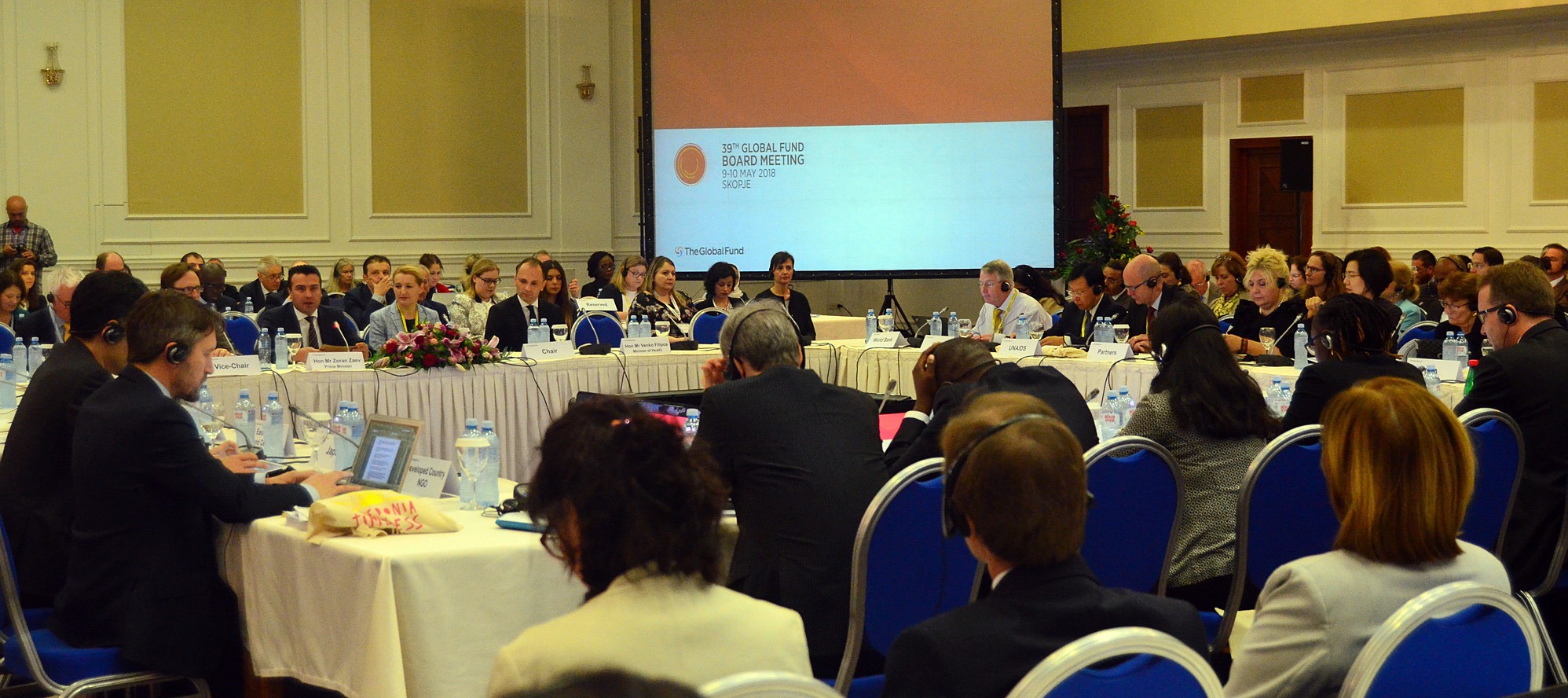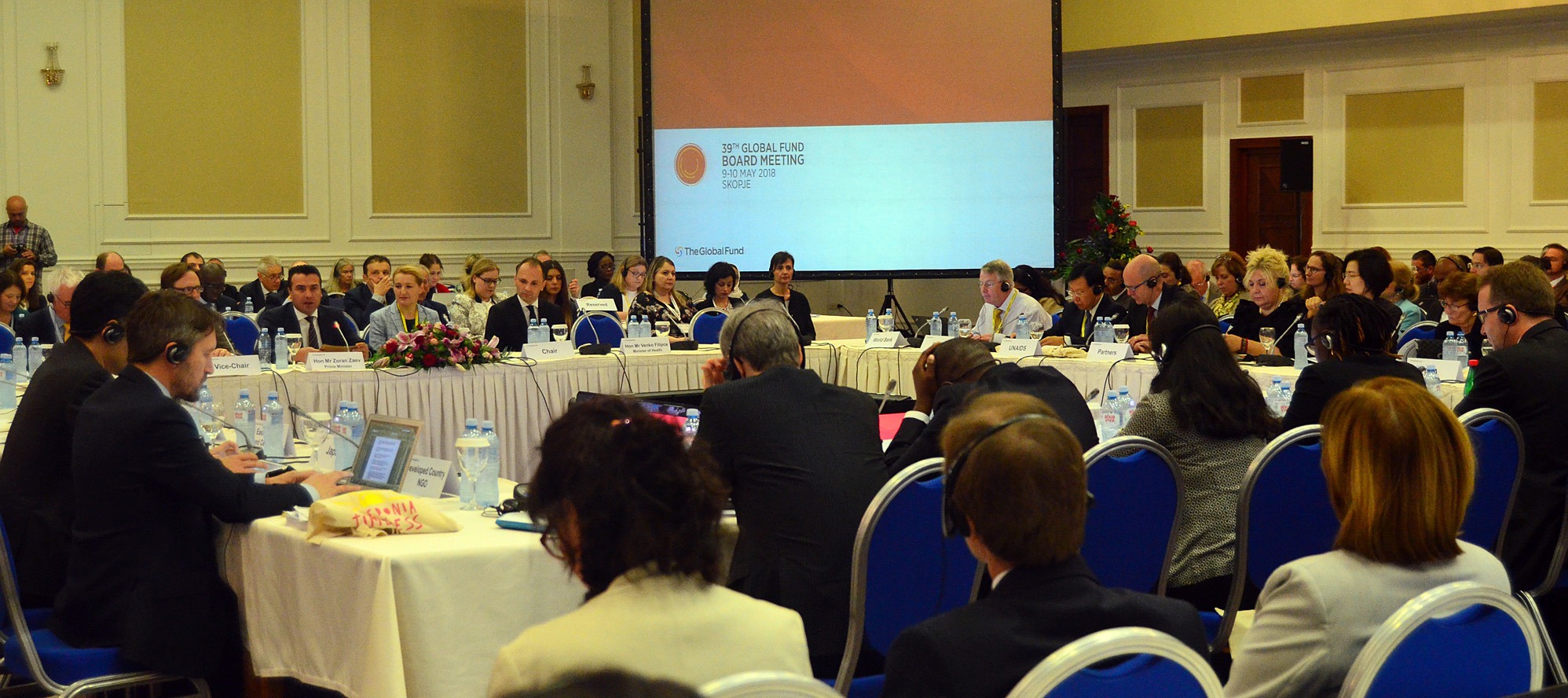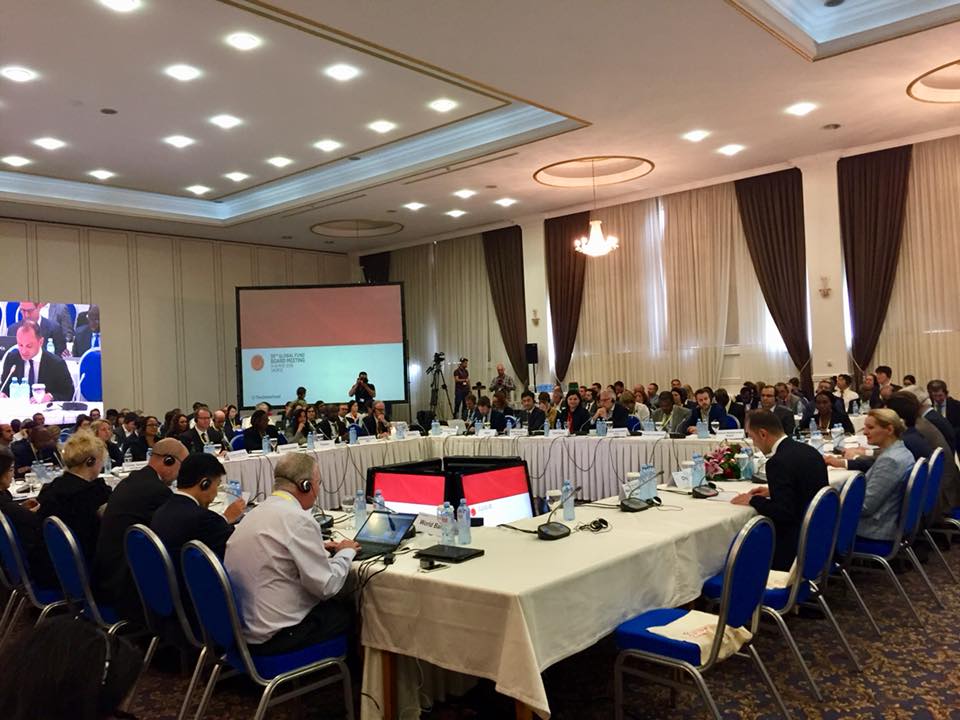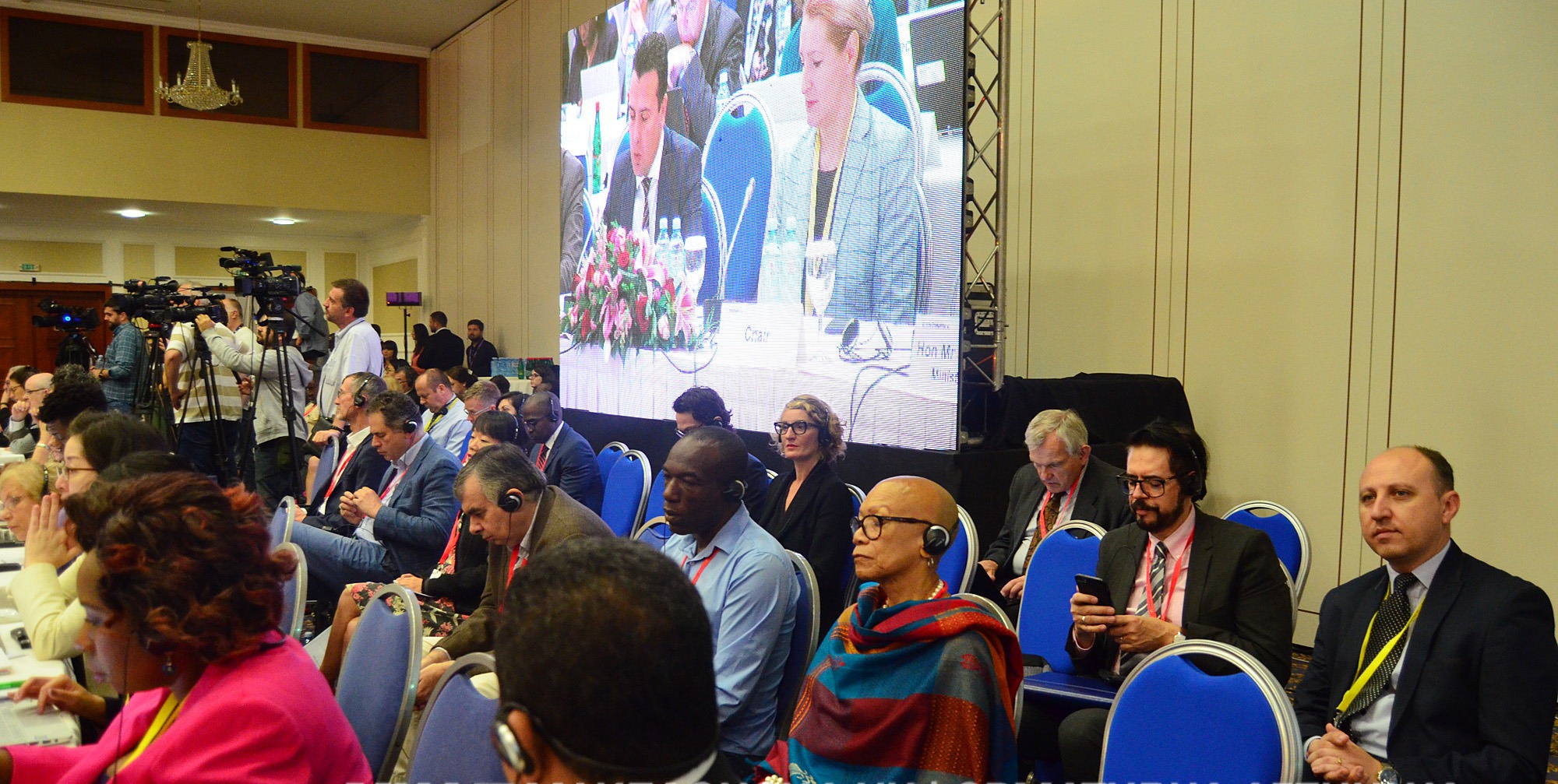The Prime Minister of the Republic of Macedonia, Zoran Zaev, and the Minister of Health, Dr. Venko Filipche, opened the 39th meeting of the Board of the Global Fund to Fight HIV, Tuberculosis, and Malaria in front of 300 delegates from around the world.
“It is high time to ensure an environment that neither condemns nor discriminates against people living with HIV or tuberculosis. Only in this way can we guarantee the protection and realization of fundamental human rights. The Government of the Republic of Macedonia, guided by the concept ‘One society for all,’ is making efforts to create a society free from prejudice. Each of us is different and unique in our own way. Disease should not be the measure of a person’s worth,” emphasized the Prime Minister of the Republic of Macedonia, Zoran Zaev, at the opening of the two-day meeting of the Board of the Global Fund, which began today in Skopje.
The presence of many delegates from all around the world testifies to the respect for the Government of the Republic of Macedonia and the Ministry of Health for their successful management of the HIV virus and tuberculosis, both major health and social challenges.
“Over the past 14 years, the Republic of Macedonia has received as much as 34 million dollars from the fund to fight HIV and tuberculosis. Starting this year, the Republic of Macedonia has fully taken over the financing of projects for the fight against HIV and tuberculosis. For this purpose, the Government allocated 1.5 million euros in 2018, which is three and a half times more compared to last year,” Zaev stated.
With this, he emphasized, the Republic of Macedonia has become a regional leader in state financing of HIV and tuberculosis programs. He pointed out that with these funds, the Ministry of Health has created conditions to continue implementing all preventive programs that, in recent years, have been carried out with financial support and assistance from the Global Fund.
“It is worth noting that the prevention programs have been developed and will be implemented this year together with representatives of 15 civil organizations and groups of affected citizens. In our region, we face a relatively low rate of HIV and tuberculosis. This relatively low rate somewhat facilitates our work – with relatively small investments but focused efforts, we have the chance to bring both diseases under full control, and even eradicate them,” Zaev highlighted.
Investing in protection over the long term will save many lives. According to him, state financing must continue to increase to guarantee the long-term sustainability of the programs fighting HIV and tuberculosis and to cover a larger number of affected citizens.
Minister of Health Venko Filipche presented some of the conclusions from the meeting, emphasizing that it takes place at a time when a strong political commitment to HIV and tuberculosis prevention is crucial in Southeast Europe. Currently, countries are increasing state financial support, while the Global Fund supports countries with the highest rates of these diseases and with lower economic capacity.
“Since strengthening sustainability is an ongoing process, the dialogue from this ministerial meeting should continue within and among countries at political and technical levels, involving different sectors, including affected communities and civil society,” added Filipche.
The Executive Director of the Global Fund to Fight HIV, Malaria, and Tuberculosis, Peter Sands, said that the Global Fund has made a tremendous contribution by working with many partners when it comes to reducing mortality and the spread of these diseases.





